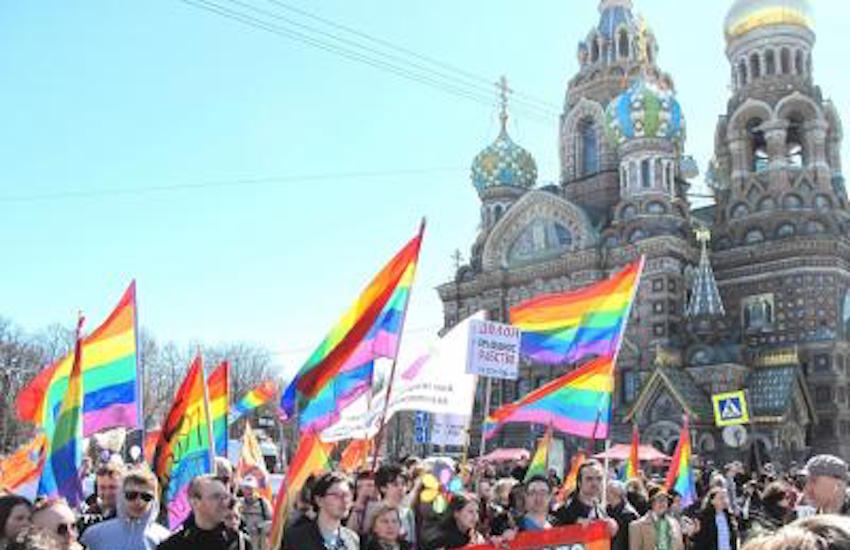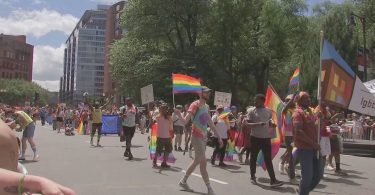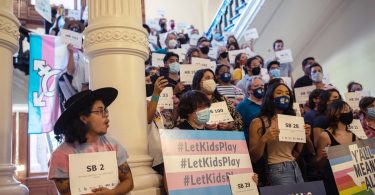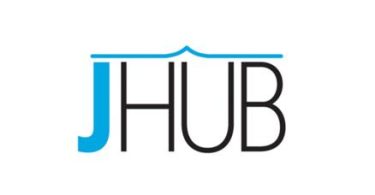A Pride parade in Russia.
A HIV advocacy organization was left in shock when Russia’s government granted it funding for a HIV prevention program for men who have sex with men (MSM).
The government will give 100,000 rubles (US$1,577) to the ‘To Live’ program in Yekaterinburg – Russia’s fourth largest city. Yekaterinburg is the capital of the Sverdlovsk Oblast region and is about 1,800kms (1,118 miles) west of the capital, Moscow.
The government funded the group as an acknowledgment that not much federal spending had gone towards LGBTI sexual health.
It is a surprising move given the government’s homophobic history. Only two months ago it shutdown a website dedicated to HIV and sexual health information for MSM. The government used its controversial ‘gay propaganda’ laws to justify shutting down ParniPlus (Guys Plus).
To Live’s director, Nadezhda Dernova, said the grant will help them to rent office space to develop the program.
‘We decided to apply for funding for the target group of men who have sex with men, because this is a very discriminated against group, and this group is difficult to find money for,’ Dernova told Current Time.
‘To be honest, I didn’t believe right up until the last moment that we would win the grant, but the guys who worked with me were confident that we would win.’
Russia and Yekaterinburg’s HIV epidemic
HIV is on the rise in Russia, especially among high risk groups like, MSM.
Almost two-thirds of Europe’s new HIV cases come from Russia, with Sverdlovsk Oblast accounting for the highest new rates of cases in the country.
People living with HIV make up 1.6% of the population in Sverdlovsk Oblast. But that figure is likely to be about 10 times higher among MSM.
Vitaly Melkovsky is one of the few people openly living with HIV and gay in Yekaterinburg. He said stigma holds MSM from seeking testing and treatment.
‘We are losing the war on HIV in Yekaterinburg, because there is one story about the epidemic in Yekaterinburg, the huge number of people who live with HIV, and there is another story about stigma and discrimination,’ he told Current Time.
To Live’s staff said they would start outreach and education programs in bars and LGBTI friendly businesses. They said they will target vulnerable groups and offer rapid HIV testing.







